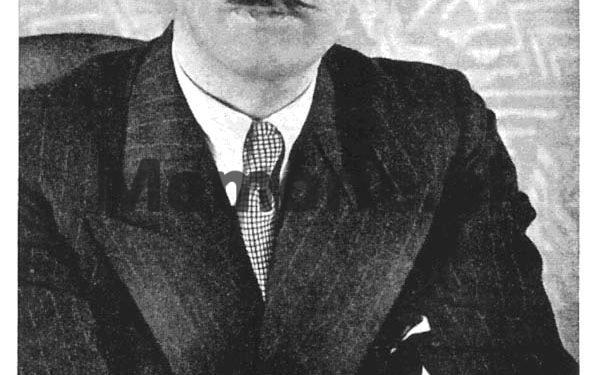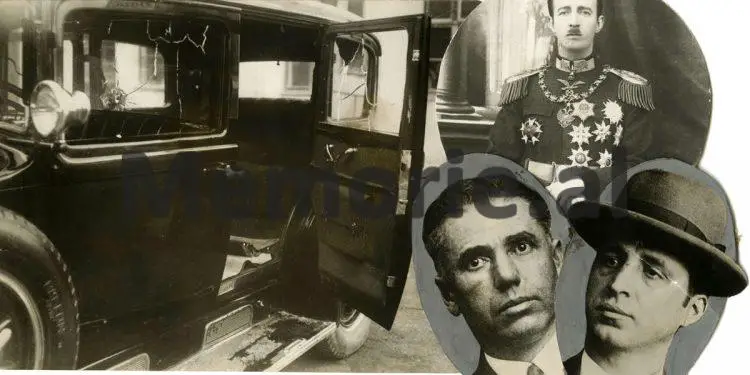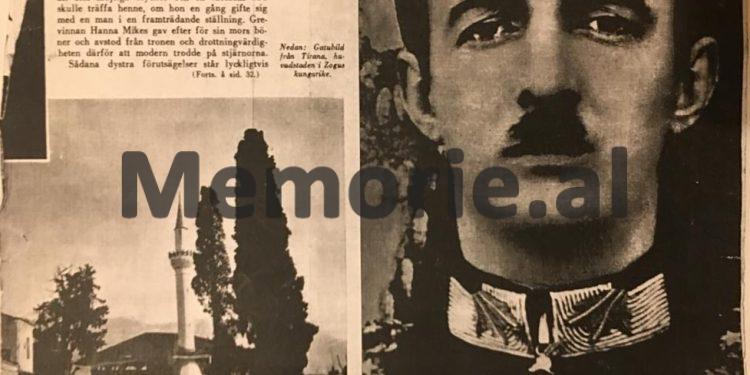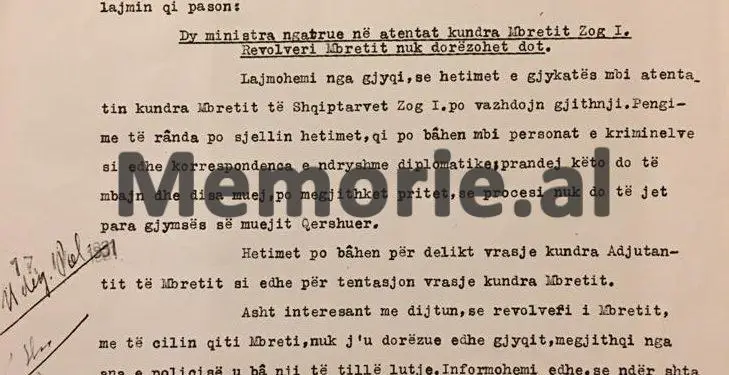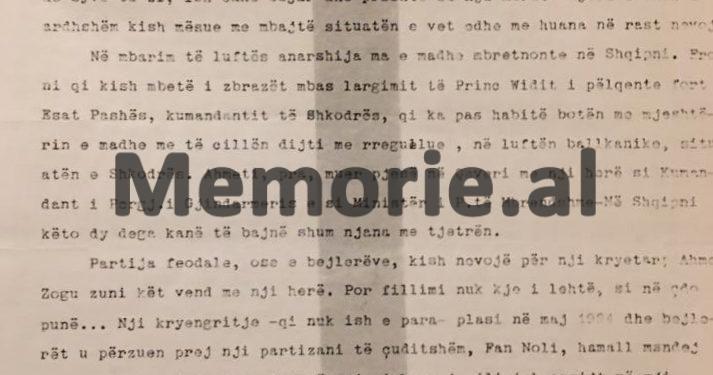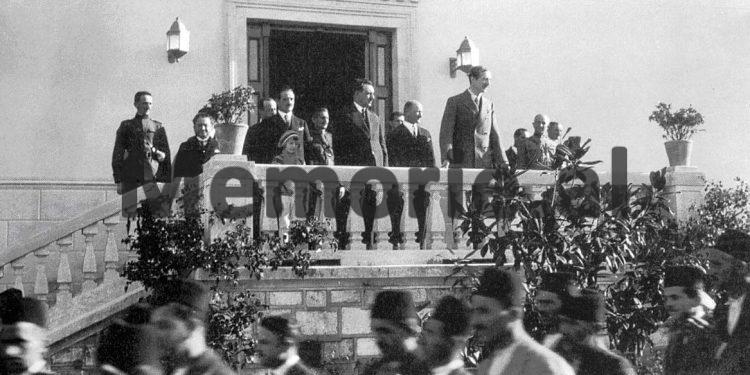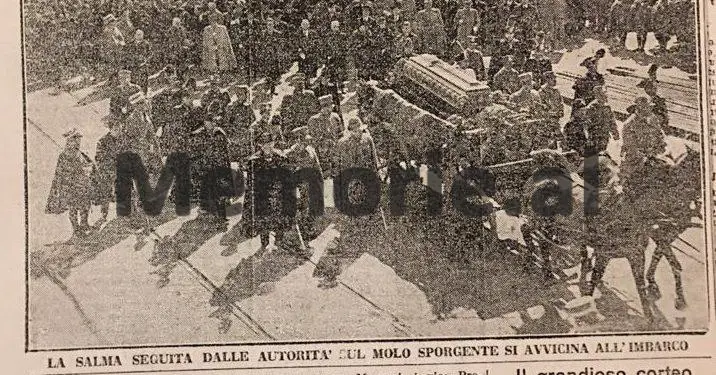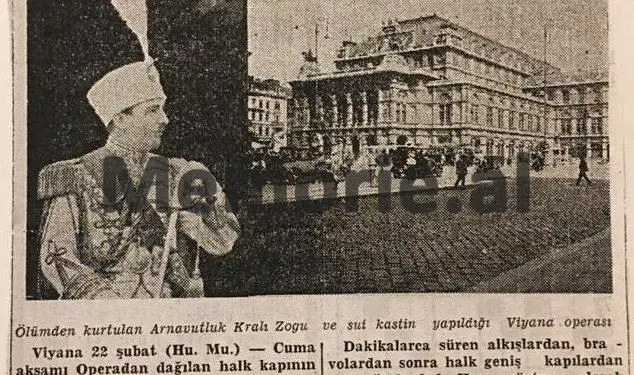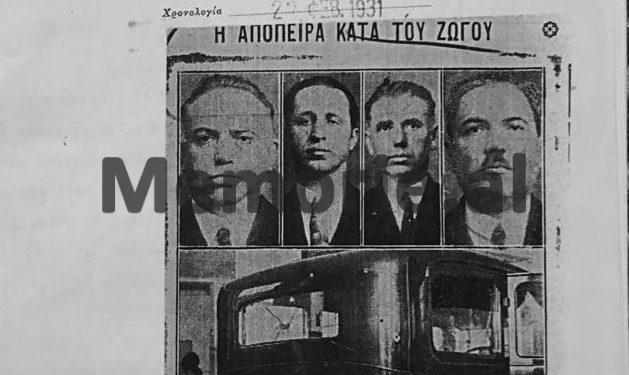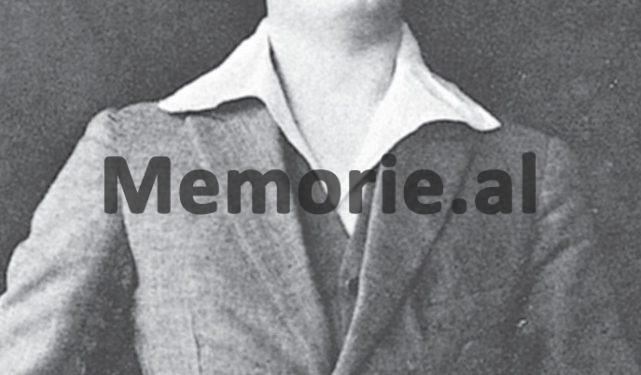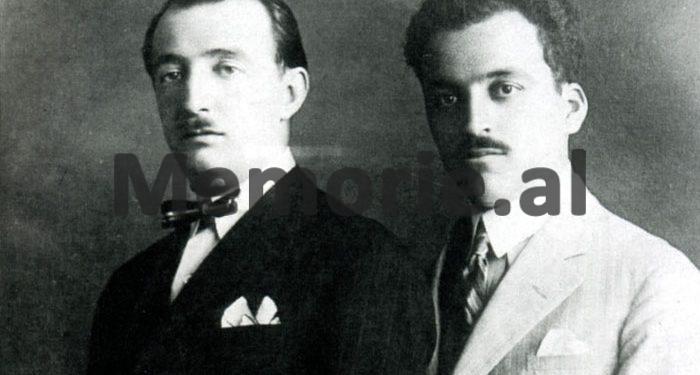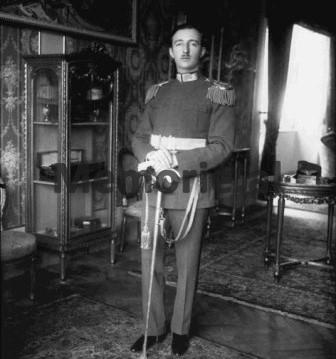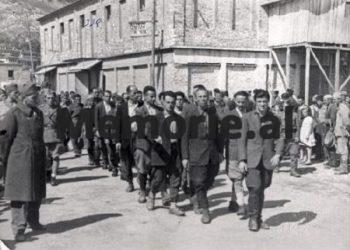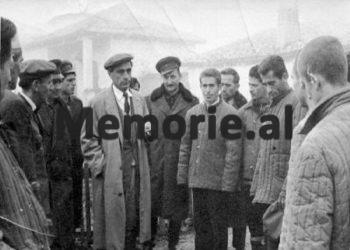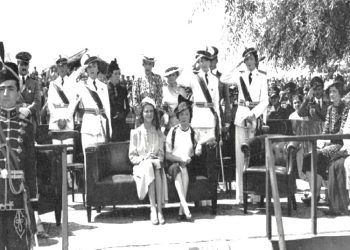Dashnor Kaloçi
The fifth part
Memorie.al publishes the unknown story of the assassination attempt on King Zog on February 20, 1931 while he was in Vienna for treatment, by a group of Albanian political emigrants living in the Austrian capital, led by Ndok Gjeloshi, Aziz Çami, two former officers of the Albanian Army who had taken part in the June 1924 Uprising, as well as Qazim Mulleti and Angjelin Suma, who, after being ambushed at the main gate of the Vienna Opera House, shot several times with their revolvers against Zog and his adjutants, while he was getting into his vehicle that was waiting for him nearby, leaving Major Llesh Topallaj killed on the spot and injuring the Minister of Foreign Affairs of Albania, Ekrem bej Libohova . How was that news conveyed and the whole story of the assassination of King Zog who miraculously escaped untouched by the assassins’ bullets, in the biggest newspapers in Europe and the USA, such as: “The New York herald”, ” “Daily Telegraph”, “Daily Express”, “Chicago Tribune”, “Moring Post”, “Universul”, “Daily Herald”, “The Ciristian Scienice Monitor” etc., which found the case and published for several months in the pages of with dozens of articles, where in addition to the event in question, devoted many articles to King Zog’s friendship with the Austrian baroness Maria de Janko and her sister, Franciska de Janko, who had been for some time in Tirana and with Zog’s visit to Vienna, they had also gone there to be accommodated in the Hotel “Regina”, where the King of Albanians during all those days, often frequented them and went out with them for walks in the most beautiful parks of Vienna.
“A savage attack on the King of Albania Zog, took place late tonight in Vienna where the King had come to recover from Nevrostenia and nicotine poison. King Zog with his suite and some Austrian officials had just left the Opera where he was playing “The Legend of Joze”, contacted by Richard Strau, and as he was taking his place in the car waiting for him outside the opera, revolver blasts were heard in it. both sides of the car. The assailants, two men dressed well at night, fired rifles at the car windows from a close distance. Zog’s men surrounded the car and pulled the revolvers out of their belts and fired at the catapults with a coolness, presumably at the top of the mountains in the heart of Albania and not near the great Vienna Opera. Major Topollaj, one of the King’s suites, together with a braver minister, sacrificed their lives to bravely face the rain of bullets in order to save their King. Topallaj fired four times with a revolver before falling to the ground before a bullet hit him. The Major, his minister, Marshall Libohova, who has a large body, fell to the ground before the King and continued to lie on the benches, which were repulsed until he received a bullet in the dagger. Twelve more were made upon the King, and his salvation seemed a marvelous thing. The Katilas, unable to achieve their goal, were able to escape, but the people of Vienna, angered by the use of the generosity of their city, seized the Katilas and beat them badly, until the police arrived. Both cats were sent to a prison and are now being questioned. “King Zog, who kept his composure during this event, took a car and went to the Imperial Hotel on the Ringstrasse where he has lived since he came to Vienna.”
This is what is written, among other things, in the British newspaper “Daily Express” dated February 21, 1931, which in its main pages gave the news of the assassination of King Zog by a group of Albanian political emigrants led by : Ndok Gjeloshi, Aziz Çami, Qazim Mulleti and Angjelin Suma, who lived as asylum seekers in the Austrian capital, who after making the plan to kill Zog, that day had ambushed in front of the main entrance of the Vienna Opera House, where the King of Albanians accompanied by his adjutant, Major Llesh Topollaj and the Minister of Foreign Affairs, Ekrem bej Libohova, were watching the performance of the opera “Legenda e Joze”, and the moment they got out and got into the vehicle waiting for them near the gate of the Opera House, they fired several bullets from their revolvers, leaving the King’s adjutant, Major Llesh Topallaj, dead on the spot and wounding the Minister of Foreign Affairs, Ekrem bej Libohova, who with his body He defended Zog, who with his revolver fired several times at the assassins.
Regarding this event which was made public only after the ’90s, Memorie.al has provided a voluminous file from the Archive of the Ministry of Foreign Affairs in Tirana, (which is published for the first time), where there is a correspondence of the Ministry of Foreign Affairs of the Zog Monarchy with the Albanian Consulate in Vienna, which, among other things, sent to Tirana all the photocopies of the most famous newspapers of Europe and the USA, which for several months, devoted much writing to the event in question. All these articles translated at the Ministry of Foreign Affairs in Tirana as well as various archival documents about the event of the assassination of King Zog, Memorie.al is publishing them in several issues in a row, starting from today’s article and giving them in the written language of that time, without any changes as they appear in the relevant file.
Continued from the previous issue
The world press on the event of the assassination of King Zog in Vienna
“DAILY HERALD” June 18, 1921
PLOT WITH A REMOVAL OF A BALKAN KING WHO DIES
Touch our Correspondent
Belgrade, Wednesday.
Although the rumor of his assassination was baseless, it is believed here that King Zog of Albania is smuet, and that he will not live long.
He also fears that his death could have caused a critical and dangerous situation in the Balkans.
It is said that the Italians have in mind vue in his place Prince Mihal, a Nalases since marriage is the medicine with the Obrenovitch family, which ruled Serbia before Karageorgovitch came.
It is also said that they think of the Albanian capital from Tirana to Shkodra, on the shores of a lake whose two-thirds of its waters are in Malsi, which is on Yugoslav soil.
Such a thing would have caused trouble in Malsi and made impossible any reproobement between Albania and Yugoslavia.
In case of trouble, Italy would have used the powers (pouveira) given by the Tirana Pact to bring troops to Albania, and it is not known if it would have left the country peacefully.
The fascist s’mramit government has approached Albania with a u 2,000,000 interest-free land, with the condition that 10,000 Italian farmers and their families be allowed to take the best land in southern Albania and establish a semi-colonial there. autonomous.
This would have further strengthened Italy’s fist over Albania and made the State whose independence was guaranteed by all the Great Powers, nothing more than a pied-s terre for Italy, on the occasion of a war with Yugoslavia.
The Yugoslavs, before allowing a Prime Minister Malases to ascend the throne of Albania, had favored Wilhelm Wied’s restaurant. The German prince, who for a short time before the war, was King of Albania.
YORKKSHIRE EVENING PRESS
18.6.1932
Again, King Bird. An evil deity has always been over this Balkan Monarch and now it seems to be definitely over.
All of this is a bit pathetic, but there is little doubt that King Zoghu is smuet in a country that has little sympathy for weakness, psychic or otherwise.
Tales that auy is dying of a cold disease – tales about his death – may be premature: but how premature is thought?
I am showing sod nade that Shqypnia is seriously concerned about its King.
Although he is a young ala, Zogu is truly one of the most picturesque Kings in modern Europe.
He is once a Muslim.
Consequently, it seems that you are entering into one of those romantic entanglements that are the special prerogative of the Kings of the Balkans.
It seems that his recent stay in Vienna was triggered by the infatuation of a well-known actress.
Europe hoped that ay would make them a Prince like those of “Die lusting Wite”.
But it seems that the rules of the Albanian Court are too strict.
In any case, Albanian diplomats have made a wide range of denials.
And they will have published more rebuttals in the last six months than any other Government.
I feel sorry for the foreign correspondents who are now trying to shake the reumuers over King Zog’s health.
There are so many sides to interest in Balkan diplomacy and so many tedious secrets Courts, sensors, etc., that it is often better to leave the country before publishing what one knows.
According to the latest rumors, Mussolini wants a Montenegrin Prince instead of King Zog /
Mussolini also reached an agreement on the decision of a majority of Italians in Albania.
Prince Mihal was educated in England. Ay is 23 years old and has quite cosmopolitan ideas.
But I do not believe that he was particularly liked by a people with strong Muslim ideals.
First of all, they do not like Parisian fashion.
It must therefore be borne in mind that Albania’s neighbors, Yugoslavia, are ruled by the Karageorgevitch family 0 sworn enemies of Prince Mihal’s family.
Given that bloodshed is still fashionable in the Balkans, the Yugoslav reaction to the accession of Prince Michael to the throne of Albania can easily be imagined.
Dr. NOBODY
“THE STAR” on June 18, 1931
THE MYSTERY OF A KING
The Cabinet talks: “If the Bird of Albania dies”?
NEW RUMEURS ON HIS HEALTH
“Probable Death in the Nearby”
What is the mystery that surrounds the Bird King of Shqypnia?
After the explanation of the news of his death, as a joke of a radio amateur, telegrams received from the Capital of Albania, say that:
It is unofficially reported that King Zog suffers from a debilitating illness that was declared incurable, and the Yugoslav Cabinet has discussed problems that may arise in the event of King Zog’s death.
According to unofficial news about the King’s illness, his death is probable in the near future.
PEACE IN THE BALKANS
King Zogu has no heir and his death would have caused a serious situation in Albania, says a telegram from Reuters.
For these reasons, it is probable that if he became seriously ill, the fact would have been hidden from state officials. The issue of a successor to King Zogu has troubled the countries of South-Eastern Europe for some time, as the Albanian issue is linked to the issue of Adriatic freedom and peace in the Balkans.
THE CURRICULUM VITAE OF HIS GREATNESS CONTINUES
Abbreviation: Belgrade newly alarms the most biased world over the assassination of N. M. His King.
Honest Royal Minister of Foreign Affairs
in Tirana
Last night at midnight the news came from London, announced by the Belgrade press, that Our King had been killed. This news was published only by two local notebooks, i.e. “Neuet Wiener Tagblatt”, and “Der Tag”. The others, who had not printed even after the information, which they received from our correspondent here, did not announce the news in question. On the contrary, all the evening newspapers categorically denied the Belgrade news, as can be seen from the following two translations:
“Neuet Wienerë Tagblat”, no. 23463, dated 17.VI.1931.
Did Ahmet Zogu kill you?
Unconfirmed news from Belgrade.
“The news of the Hungarian Press Office is transmitted to us from Budapest late at night:
London, June 16: Unconfirmed Belgrade news says Ahmed Zogu was killed. Other details are missing.
The Press Office of Vienna announces: that after the telephone questions that you do this in Trieste and Rome, it turns out that this news was not confirmed to you at all “.
“Neueta Wienrë Tagblatt”, published this evening the refutation of our correspondent Mr. Leo, A. Friendly:
News about Ahmet Zogu
The news of Belgrade that says that after a second assassination, Ahmed Zogu was killed is refuted. The local Albanian offices have never received such news. King Zog left on the 11th of k. Tirana, his residence, and with his eyes he traveled to Durrës to spend the summer like all years.
The news about the assassination of the King, it seems, from the point of view of the official circles of Albania here, as a mystification, which has been repeated for many years now.
Relevant coupons are being sent here past. /Memorie.al
With special honors
Vienna Consulate General




